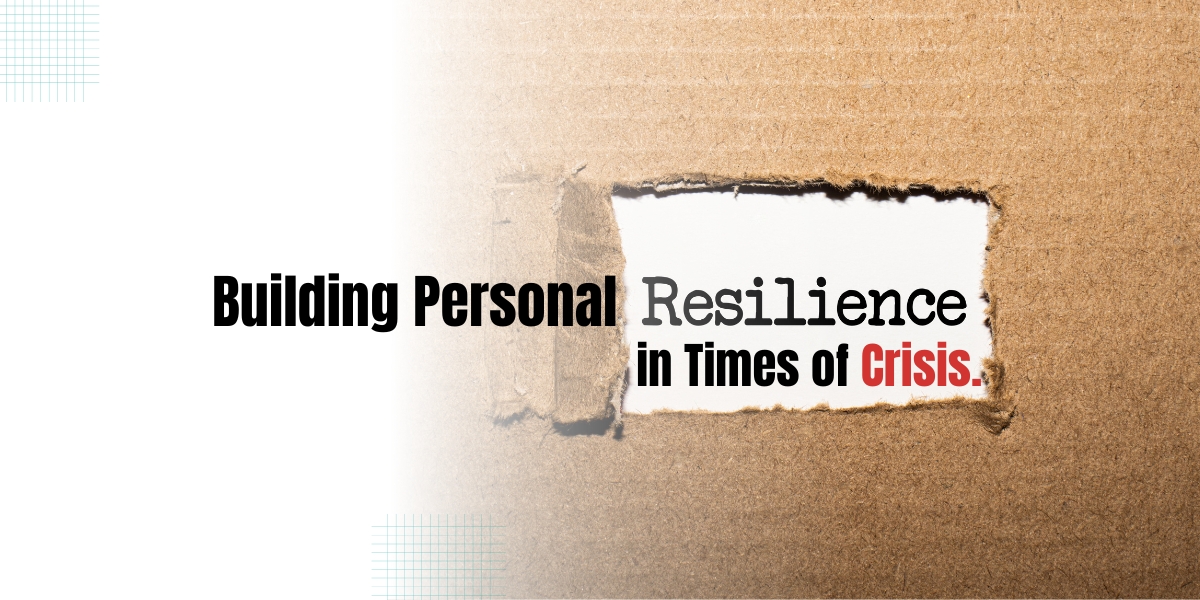
Building Personal Resilience in Times of Crisis
A crisis is an ideological test on the edge of our endurance; it is a creator of mental and emotional strength. Personal resilience, brought about by innumerable precipitants—be they personal setbacks, health issues, or global events such as crises—is associated with successful navigation through each of these encounters.
Resilience is a factor that allows a person to rebound from adversity and recover positively from challenges. This article outlines a roadmap to personal resilience and how one can build up this ability to cope with a resilience program.
What is Personal Resilience?
Personal resilience refers to the ability to adjust positively in the presence of adversity. The following primary features mark it:
- Optimism: The ability to maintain hopes of positive outcomes despite adversities.
- Emotional Regulation: The ability to control one's emotions so that the feelings of stress are contained and do not get out of hand.
- Self-Efficacy: People who work on improving self-efficacy have confidence that they can influence events and cope with difficulties.
- Flexibility: Resilient people will modify their plans when faced with obstacles to be able to reach their goals.
How to Build Resilience?
❖ Develop a Growth Mindset
A growth mindset is the belief that skills and abilities can be cultivated through hard work and dedication. Rather than viewing crises as hopeless, know there is something to be learned. This mindset will help you look upon crises more with curiosity than hostility, offering optimism for recovery and adjustment.
❖ Develop and Maintain Close Relationships
Family, friends, and colleagues, when one is in crisis, are the ones who provide one with both emotional comfort and practical help. One has invested in such relationships for the acquisition of a network that can be tapped for advice, encouragement, and belonging.
The importance of such contacts manifests in maintaining the course even when the going gets tough. They are resilient to stress and help to put things into perspective.
❖ Look After Yourself
The forgotten way to manage stress or keep things in perspective is through self-care.
The key aspects are:
- Healthy Diet: This supplements physical health and a sufficient supply of energy.
- Sustainable Rest: People will be motivated to ensure they can take care of themselves by getting sufficient rest for emotional and cognitive functioning.
- Mindfulness Techniques: These can be meditation or deep breathing and will enhance stress and emotional regulation.
- Plan and Achieve Attainable Goals: Setting small, attainable goals provides focus and a sense of achievement. Breaking large tasks into manageable steps can help prevent feelings of being overwhelmed. Celebrating progress, however small, can inspire. It will also help reinforce the fact that one is able to manage hurdles efficiently.
❖ Develop Problem-Solving Skills
Effective problem-solving involves identifying answers and decisions to problems. Improving problem-solving skills will assist in solving several issues at once and growing confidence in the solutions implemented. Practice diagnosing problems, looking for answers, and assessing results to become stronger in these areas.
Keep Perspective
Keeping a proper balance involves recognizing both the challenges and potential opportunities in a crisis. While it could be essential to acknowledge difficulties, make an effort to focus on possible positive outcomes and learning experiences. This balanced approach will prevent negative thinking and will promote a more resilient way of thinking.
Practice Being Flexible
Being flexible means being open to change and ready to adjust operations in response to new circumstances. In effect, becoming flexible in one's approach will reduce the magnitude of uncertainties and find one or more means of coping with situation mutations.
Conclusion
Putting these strategies into practice and making them a part of your daily life can make a big difference in your ability to become and remain resilient. However, engaging in a program to enhance your progress is another step that will go further.
By using personal strategies along with the structured support of a Resiliency Program, you will manage a crisis from a higher position of strength and flexibility. The program provides you with structured support in several ways to build your level of resiliency.